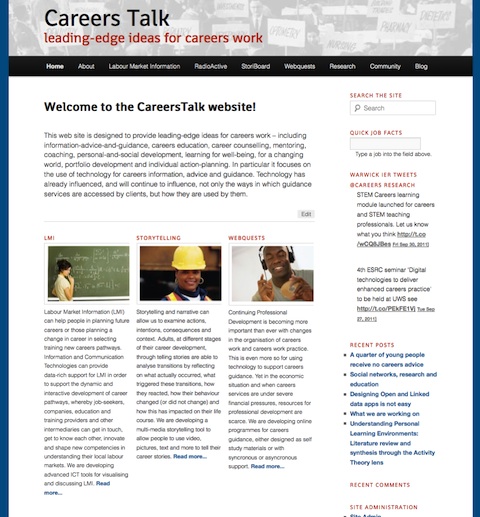Warning – this article is not based on any reliable research. However it is based on talking to a lot of people over the summer about their attitudes towards social networks and how they use them. Most of the people are working on various educational projects and are based in Europe although some were from north America and the Middle East. So in no way a representative sample but an interesting one.
Firstly there seems to be an increasing number of people who are opting out of Facebook or, if maintaining accounts, merely forwarding posts from Twitter or another social networking service. Reasons vary from Facebook privacy issues, difficulty in managing ‘friends’, social network overload, disliking the Facebook apps (Farmville is often quoted) to just feeling Facebook is a personal network not suitable for business or educational use.
Against that there seem to be a growing number of people who are separating out their use of different social networking accounts, for example using Facebook for keeping in touch with family and friends and Twitter for work.
There seem to be less people who ‘don’t get Twitter’ although against that a growing skepticism about its future with some feeling it will become increasingly taken over by commercial interests.
Many I have spoken too are thinking about the longevity of social networking services, especially free services. This seems to be increasing as so many people have invested time and effort into Flickr which they fear may be in danger due to Yahoo’s financial woes.
Google+ is the big unknown. Firstly its insistence on real names is alienating substantial numbers of social network evangelists. However, many also see its use as a business and research tool, particularly the use of circles and hangouts for project communication. However, many, like me, are struggling to maintain a presence in so many different networks!
And finally blogging. Without wishing to revive the old #F-Alt debate that micro-blogging is killing blogging, I sense a return to blogs, as offering a form and medium which can be used for substantial writing and reflection.
Regardless of feelings and preferences over individual services, there seems to be a general acknowledgement that social networking is here to say and that it is becoming an integral part of research, communication and exchange for projects and education. Probably the fastest growing services being used for project management and communication are Dropbox, Google docs and Skype.
Be interested in any of your opinions.
